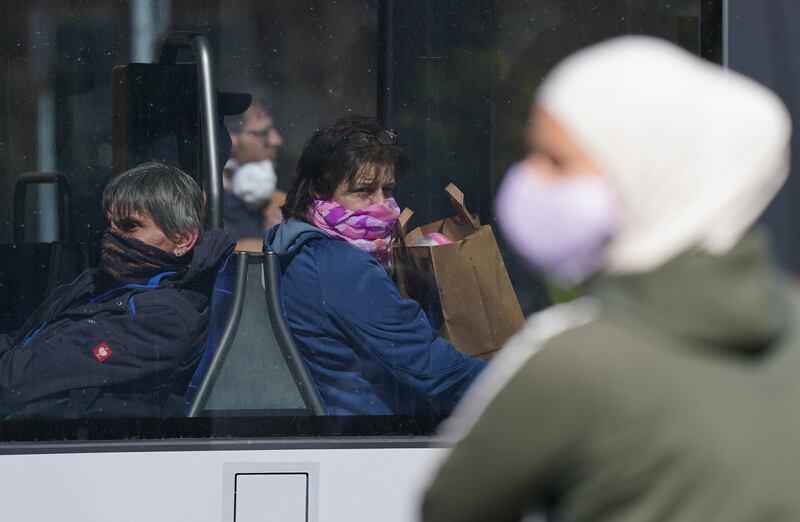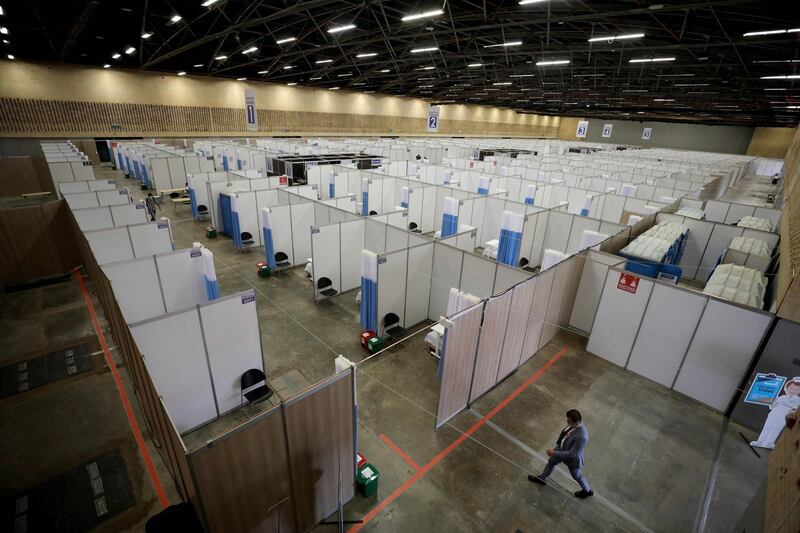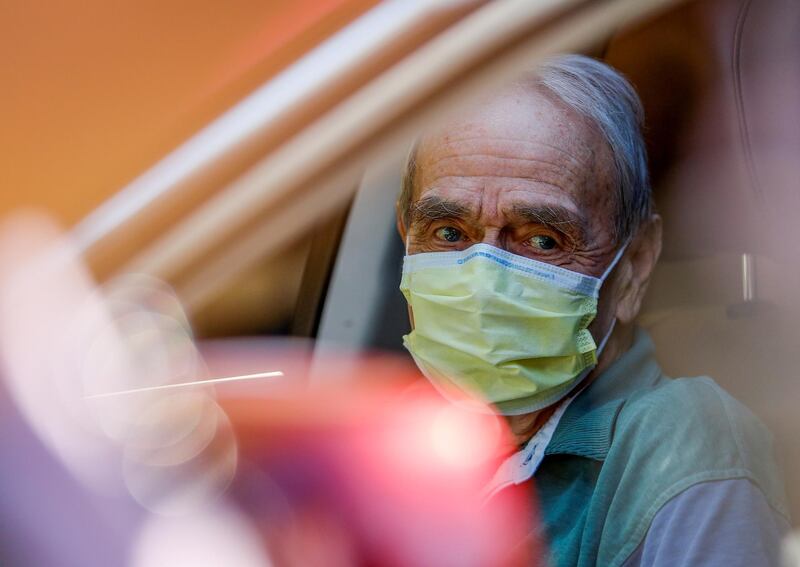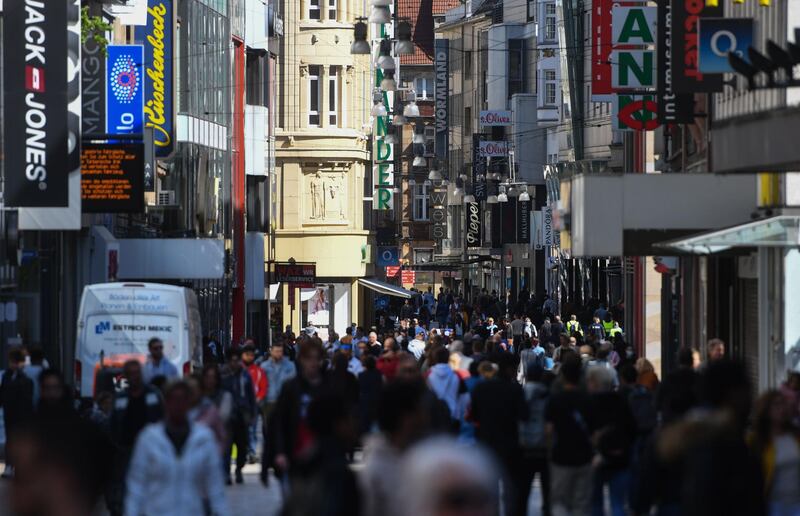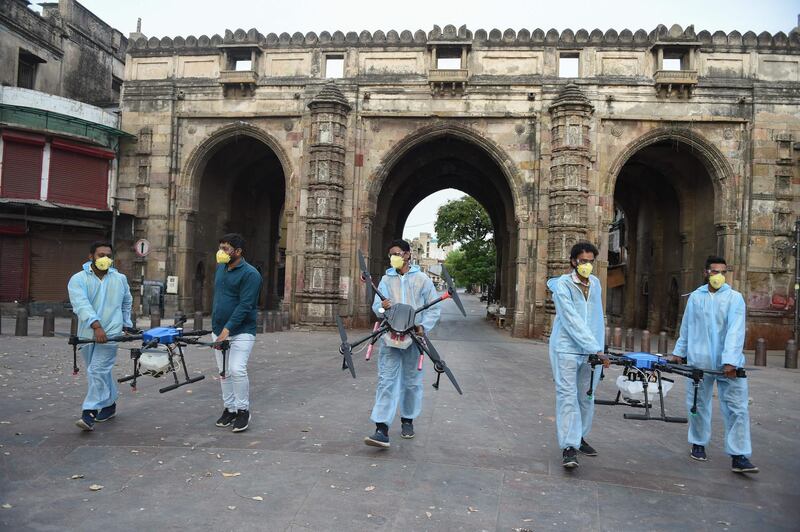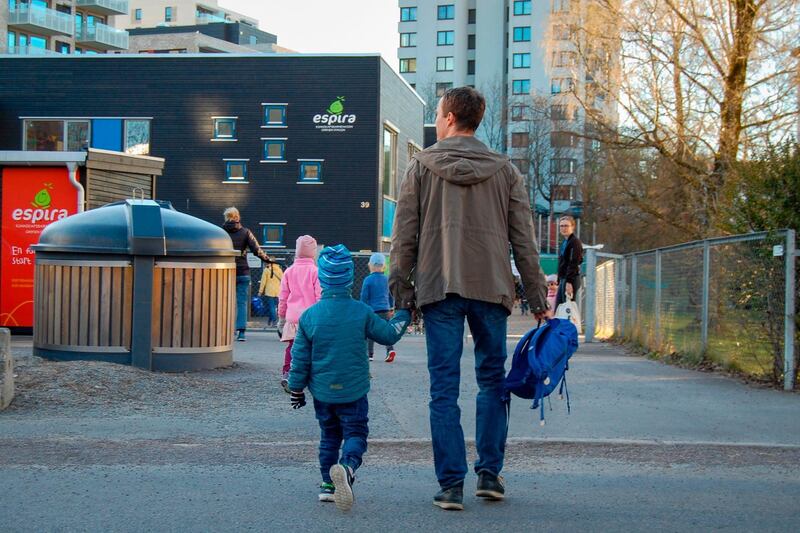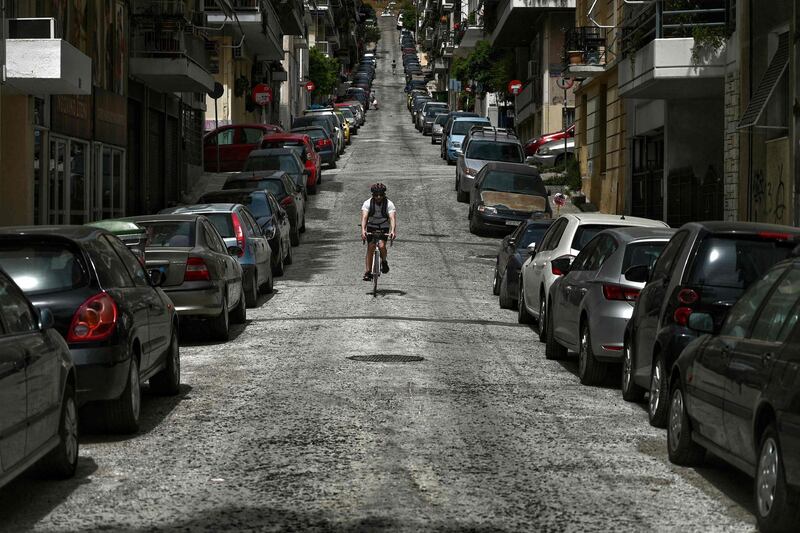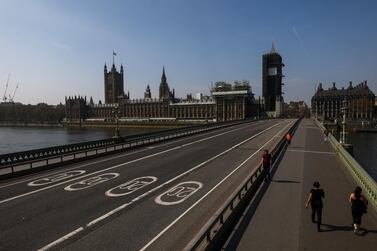Germans in three states have been ordered to wear masks when venturing out of their homes as the country inches towards normality.
Covering the nose and mouth is now compulsory for people using any form of public transport or entering shops in the three states – and in some cities elsewhere.
In the city of Dresden, about 200,000 masks were distributed to the public on Monday, when the eastern state of Saxony became the first German state to make their use compulsory.
The requirement was followed by a similar move in the northern state of Mecklenburg-Western Pomerania.
Bavaria, in the south, on Monday became the third state to bring in the measure.
It is dealing with the worst outbreak of the virus in the country, with about 38,000 confirmed cases and almost 1,300 deaths.
From next week, the city of Munster in North Rhine-Westphalia, Germany’s most populous state, will require masks to be worn in shops, markets and public buildings, as well as on buses.
Most shops with floor space below 800 square metres have been allowed to welcome customers again, the first wave of scaling back lockdown measures introduced last month. But the government faces increasing pressure from other sectors still facing curbs to move faster and let them get business back on track.
Mrs Merkel and local government authorities announced the decision to reopen last week, but were careful to frame it as a cautious first step.
On Monday, as small shops opened for the first time in a month, the chancellor warned Germans the country was still at risk from the pandemic.
“We must not lose sight of the fact that we stand at the beginning of the pandemic and are still a long way from being out of the woods,” she said.
It would be a “crying shame if we were to stumble into a relapse with our eyes wide open.”
Mrs Merkel said loosening restrictions too hastily could be counterproductive as the effects of the new measures would not be seen for two weeks.
“We must remain vigilant and disciplined,” she stressed.
Germany has recorded about 147,000 cases including 4,862 deaths, a fatality rate far below those of Italy, Spain, France and the United Kingdom.
This is attributed in part to to its intensive care capacity and widespread testing.
